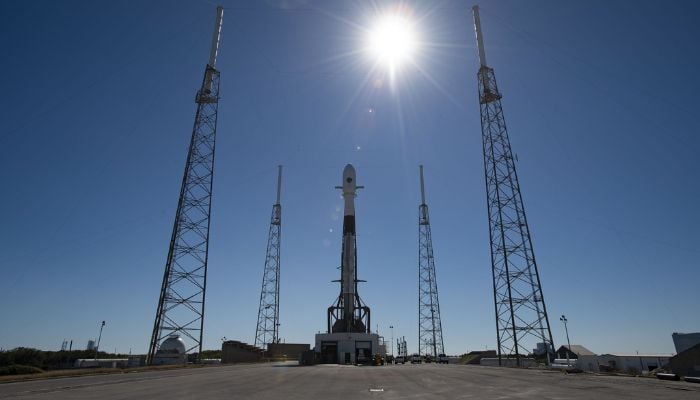WATCH LIVE: SpaceX launch countdown to begin soon
SpaceX rocket launch today is planned for 7:24am ET where a sixth next-generation GPS satellite will lift off from Space Launch Complex 40
January 18, 2023

SpaceX is scheduled to launch a GPS satellite into orbit on Wednesday at 7:24 am ET and you can watch the launch live online.
Previously planned for 7:10am EST (12:10 GMT), a Falcon 9 rocket from SpaceX is planned to launch GPS III Orbit Vehicle 06, an improved Global Positioning System satellite, into space from Space Launch Complex 40 at Cape Canaveral Space Force Station in Florida.
The launch will be SpaceX's fourth in 2023. The Falcon 9's first stage will make an attempt to land around eight minutes after liftoff, as is customary.
You can watch it live at Space.com or go to the tech giant's website.
Amelia Earhart, a well-known female aviation pioneer and the first female pilot to fly across the Atlantic Ocean, is honoured by having her name attached to this GPS satellite. The GPS III series has six launches, with the final one named after Neil Armstrong.
The US Space Force will launch the satellite as part of a bigger initiative to update the country's GPS fleet. According to Lockheed Martin, the new satellite's manufacturer, it will eventually be one of 32 next-generation satellites with an anticipated lifespan of 15 years.
According to Lockheed Martin, the most recent generation of GPS satellites offers up to three times greater accuracy, eight times stronger anti-jamming capabilities, and a new modular design that allows for adaptability "to better address evolving mission needs and emerging threats."
According to the corporation, four billion people, or almost half of the world's population, rely on GPS technology for a variety of purposes, including transportation, precise agriculture monitoring, and utility infrastructure, some of which uses GPS in part to pinpoint service areas.
There are other navigation satellite systems than the US GPS network as well. Russia has GLONASS, China has Beidou, and the European Union has its own system named Galileo. In light of Russia's invasion of Ukraine in February 2022, it is common to discuss GPS system independence as a crucial issue of national sovereignty and security.











